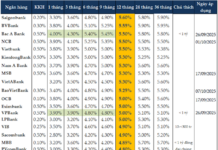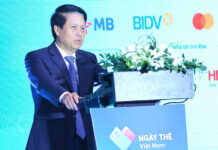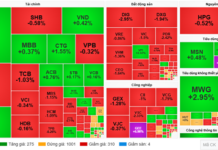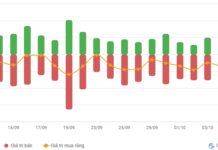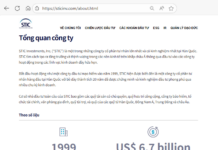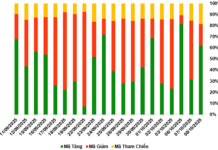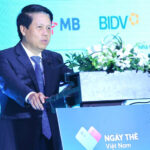
On October 7th, as part of Vietnam Card Day 2025, under the guidance of the State Bank of Vietnam, Tien Phong Newspaper and the National Payment Corporation of Vietnam (NAPAS) hosted a seminar themed “One Touch, Endless Trust – Shaping the Future of Digital Payments.”
At the seminar, Mr. Nguyen Ba Diep, co-founder and Vice Chairman of MoMo Financial Technology Group (the largest digital financial ecosystem in Vietnam, serving over 30 million users and 500,000 businesses and merchants), shared that MoMo has been actively expanding its QR code payment method to international markets.
Currently, this e-wallet supports hundreds of bill types, including electricity, water, internet, tuition, insurance, medical fees, and travel, all with just one touch. Transactions via MoMo account for approximately 25% of total payments on the National Public Service Portal, contributing to the formation of a “cashless” habit among millions of households.
Mr. Nguyen Ba Diep stated that in the coming period, MoMo aims to develop along two main axes: Providing comprehensive solutions to support SMEs and merchants (payment – sales management – e-invoicing – tax declaration – financial services), especially in traditional markets, to enable the ‘underbanked’ population to access digital payment infrastructure.
MoMo targets the successful digital transformation of 1 million traditional merchants and grocery stores within 3 years, while also expanding services related to tax payments, health insurance, social insurance, traffic fines, and remittances.
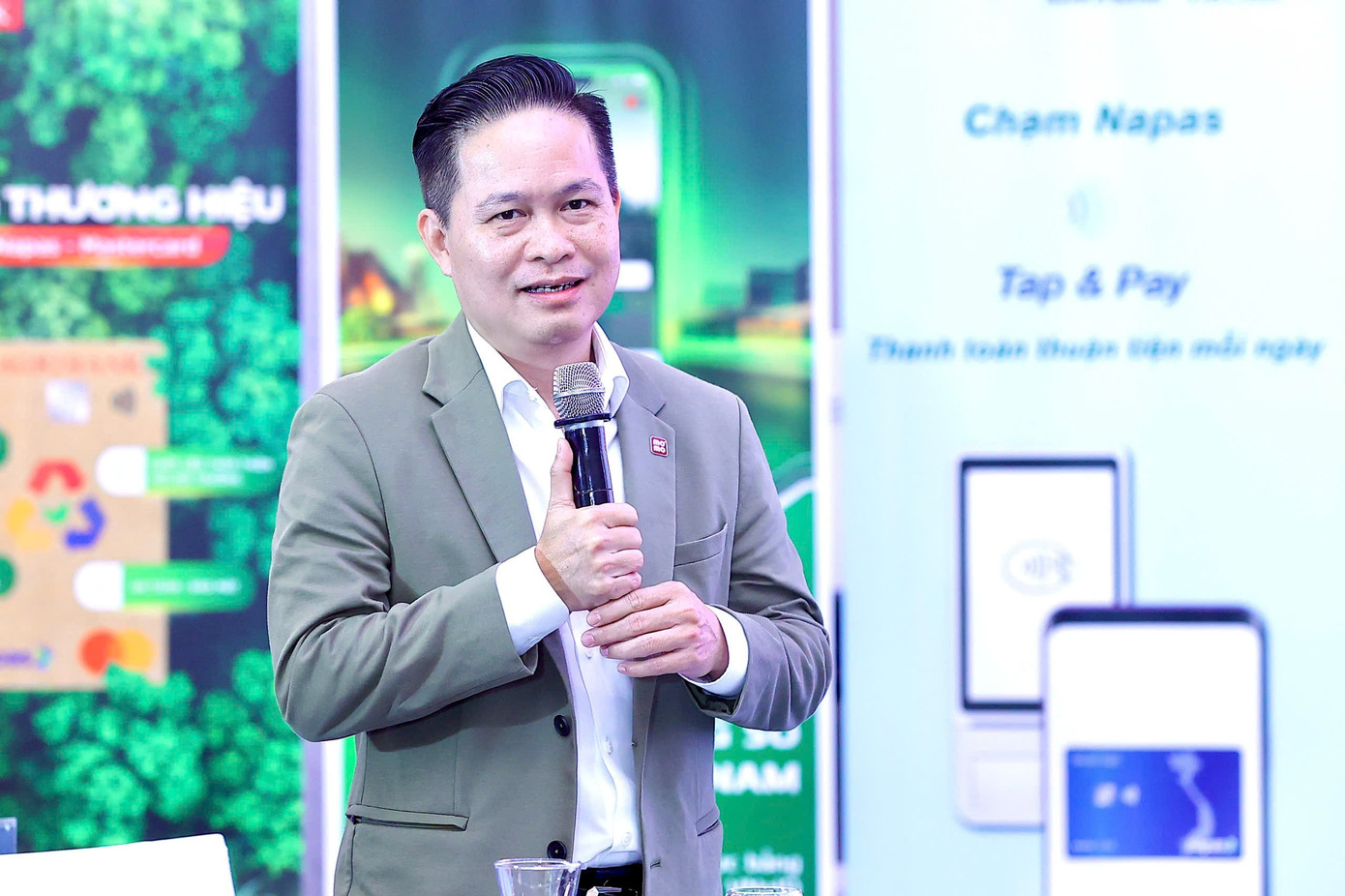
Mr. Nguyen Ba Diep. Photo: Tien Phong Newspaper.
“In the international market, MoMo previously implemented international payments for major partners such as Google, Apple, and Netflix. Moving forward, the company will focus on expanding cross-border QR payments to meet the growing demands of citizens in trade, tourism, and overseas education,” Mr. Diep revealed.
Also focusing on the “gold mine” of cross-border payments, Mr. Nguyen Hoang Long, Deputy General Director of the National Payment Corporation of Vietnam (NAPAS), which processes 70 million transactions daily, shared that NAPAS is actively developing cross-border payment connections to meet the increasing demands of e-commerce and tourism.
To date, NAPAS has launched cross-border QR services with Thailand (2022), Cambodia (2023), and Laos (2025). International visitors can use VietQR Global in Vietnam.
“NAPAS plans to complete the inbound payment connection from Chinese tourists by the end of 2025 and the outbound connection by 2026,” Mr. Long added.
He also mentioned that NAPAS cardholders can spend at over 3.41 million BC Card acceptance points in South Korea and withdraw cash from ATMs in multiple countries. The ultimate goal is to enhance the system’s autonomy, reduce reliance on international organizations, and elevate the status of the Vietnamese currency in regional transactions.

Mr. Nguyen Hoang Long
According to data from the State Bank, in the first 7 months of 2025, QR code transactions increased by 66.73% in volume and 159.58% in value compared to the same period last year; 87% of adults now have bank accounts; and many credit institutions report over 90% of transactions occurring via digital channels.
Mr. Pham Van Bay, Deputy Director of Vietravel Hanoi Branch, emphasized that cross-border payments are currently a topic of great interest. Expanding cross-border payment methods holds significant potential, and if effectively leveraged, could become a critical competitive advantage for Vietnamese businesses, including tourism companies like Vietravel.
“Today’s young consumers prefer using cards and cashless payment methods for their speed and convenience. Expanding cross-border payments will boost spending by tourists in local areas. Particularly, if small, individual destinations also adopt cross-border payments, it will encourage visitors to spend more on smaller services like coffee, souvenirs, or local experiences,” Mr. Bay analyzed.
However, Mr. Bay also noted that developing cross-border payments, alongside enhancing security and international standardization, will help businesses create a “unique selling point” to attract both international and domestic tourists. Additionally, attention must be given to technical infrastructure, legal frameworks, customer awareness, and spending habits to ensure the most suitable implementation approach.
QR Code Payments: Revolutionizing Every Corner of Life
Payment infrastructure serves as the lifeblood of the economy, ensuring the seamless flow of capital and fostering stability and sustainable growth.
“One-Tap Payments with Eximbank Visa on Samsung Pay”
Following the successful integration of Mastercard with Samsung Pay, Vietnam Export-Import Commercial Joint Stock Bank (Eximbank, HOSE: EIB) is expanding its services to include Visa cards. This move offers customers even more options for a modern, secure, and convenient payment experience.
SHB Joins Vietnam Card Day 2025, Accelerating Cashless Payments
As the official sponsor of Vietnam Card Day 2025, Saigon-Hanoi Commercial Joint Stock Bank (SHB) is set to deliver cutting-edge, secure payment experiences and exclusive rewards to its customers, particularly the Gen Z demographic. This initiative aims to promote a cashless lifestyle within the community, fostering a seamless and modern financial ecosystem.






